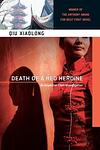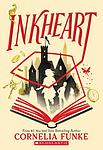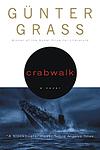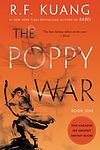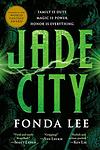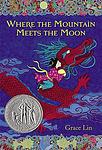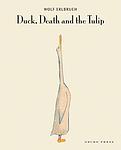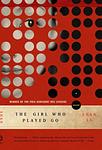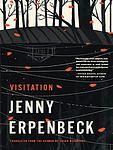The Greatest Chinese, German "Fiction" Books Since 2000
Click to learn how this list is calculated.
This list represents a comprehensive and trusted collection of the greatest books. Developed through a specialized algorithm, it brings together 284 'best of' book lists to form a definitive guide to the world's most acclaimed books. For those interested in how these books are chosen, additional details can be found on the rankings page.
Genres
Countries
Date Range
Reading Statistics
Click the button below to see how many of these books you've read!
Download
If you're interested in downloading this list as a CSV file for use in a spreadsheet application, you can easily do so by clicking the button below. Please note that to ensure a manageable file size and faster download, the CSV will include details for only the first 500 books.
Download-
1. Austerlitz by W. G. Sebald
The novel follows the story of Jacques Austerlitz, an architectural historian who was brought to England on a Kindertransport from Czechoslovakia during World War II. As an adult, Jacques embarks on a journey to uncover his past, including his original identity, his parent's fate, and his own lost history. The narrative is a haunting exploration of memory, identity, and the lasting impact of the Holocaust.
-
2. The Book Thief by Markus Zusak
Set in Nazi Germany during World War II, the novel follows the story of a young girl who finds solace in stealing books and sharing them with others. In the midst of the horrors of war, she forms a bond with a Jewish man her foster parents are hiding in their basement. The story is narrated by Death, offering a unique perspective on the atrocities and small acts of kindness during this period. The girl's love for books becomes a metaphor for resistance against the oppressive regime.
-
3. Balzac and the Little Chinese Seamstress by Dai Sijie
This novel tells the story of two teenage boys sent to a remote mountain village for re-education during China's Cultural Revolution. There, they meet a local tailor's daughter, who becomes their friend and the object of their shared affection. The boys discover a hidden suitcase filled with forbidden Western classics in Chinese translation, and their lives are forever changed. The books not only awaken their passion for literature, but also allow them to educate the Seamstress, ultimately leading to a heartbreaking love triangle and a tale of personal freedom against the odds.
-
4. The Three-Body Problem by Cixin Liu
The book is a science fiction novel that intertwines the cultural revolution of China with a complex narrative involving astrophysics, virtual reality, and alien contact. It follows a disillusioned scientist who, after suffering personal tragedy during the Cultural Revolution, sends a message into space, only to receive a response from an alien civilization on the brink of destruction. As the aliens plan their migration to Earth, a secret organization works to facilitate the invasion, while a disparate group of scientists and military personnel attempt to understand and prevent the impending extraterrestrial crisis. The novel grapples with themes of human nature, technological advancement, and the vast, often incomprehensible universe.
-
5. Death Of A Red Heroine by Qiu Xiaolong
"Death Of A Red Heroine" is a crime novel set in 1990s Shanghai, China. The story follows Inspector Chen Cao as he investigates the murder of a young woman, whose body is found in a canal. As Chen delves deeper into the case, he uncovers a web of corruption, political intrigue, and personal secrets that challenge his loyalty to the Communist Party and force him to confront the complexities of modern Chinese society. Through vivid descriptions of Shanghai's changing landscape and insightful commentary on social issues, the novel offers a captivating portrayal of a country in transition.
-
6. The Swarm by Frank Schatzing
"The Swarm" is a science fiction novel that explores the disastrous consequences of mankind's exploitation of the world's oceans. The narrative follows a group of scientists around the world as they try to understand a series of inexplicable, catastrophic natural disasters. They eventually discover that these events are not random but are the result of a collective intelligence in the sea, a swarm of marine life that has decided to fight back against humanity's destruction of their habitat. The book combines elements of ecological thriller, disaster novel, and speculative fiction as it explores the potential consequences of human interference with the natural world.
-
7. Inkheart by Cornelia Funke
The book revolves around a young girl named Meggie and her father Mo, who possesses a unique ability to bring characters from books to life by reading aloud. This gift, however, comes with a price, as they are entangled in a dangerous adventure when a villain from a fantasy book called "Inkheart" is accidentally summoned into the real world. As they struggle to fix the chaos caused by this crossover, they must navigate a treacherous world of magic and betrayal, while attempting to thwart the villain's sinister plans and protect the balance between reality and the fantastical realms of literature.
-
8. Measuring the World by Daniel Kehlmann
"Measuring the World" is a historical novel that reimagines the lives of two brilliant and driven men, German mathematician Carl Friedrich Gauss and German geographer Alexander von Humboldt. The narrative alternates between the two protagonists, exploring their individual quests to quantify and understand the world. Gauss, a child prodigy from a poor family, rises to become one of the greatest mathematicians in history, while Humboldt, a wealthy and ambitious explorer, embarks on a five-year journey across South America. Their paths converge in a humorous and touching manner, highlighting the contrast between their approaches to knowledge and discovery.
-
9. Snow Flower and the Secret Fan by Lisa See
Set in 19th century China, the novel centers around the lifelong friendship of Lily and Snow Flower. Despite their different social classes, the two communicate through a secret language known as "nu shu" written on a fan. The story explores the rigid societal norms of the time, particularly the practice of foot binding and arranged marriages. As they navigate through the hardships of their lives, their friendship is tested, leading to a devastating betrayal that impacts their relationship.
-
10. The Blind Side of the Heart by Julia Franck
"The Blind Side of the Heart" is a historical novel that explores the life of a German woman before, during, and after World War II. The story begins with her abandonment of her young son at a railway station, then flashes back to her own childhood, her experiences during the war, and her tumultuous relationships. The narrative provides a deep and unflinching look at the psychological effects of war and the struggle for survival, as well as the profound impact of trauma and loss.
-
11. Crabwalk by Günter Grass
This novel delves into the tragic sinking of the Wilhelm Gustloff, a German ship, during World War II, through the eyes of a journalist investigating the event's historical and personal ramifications. The narrative weaves together past and present, exploring the intergenerational impact of the catastrophe on survivors and their descendants. The author employs a unique storytelling technique, the "crabwalk," moving backward and forward in time to reveal the complexities of guilt, memory, and the reinterpretation of history. Through its intricate plot and deep character exploration, the book addresses the themes of nationalism, the repercussions of war, and the struggle to come to terms with one's heritage.
-
12. War Trash by Ha Jin
The novel is a fictional memoir of a Chinese soldier who is captured during the Korean War and spends several years in American POW camps. He struggles to survive in the brutal conditions and navigate the political rivalries among the prisoners, while holding onto the hope of repatriation and the fear of being labeled a traitor by his own country. The narrative explores themes of loyalty, survival, and the human cost of war.
-
13. The Poppy War by R. F. Kuang
The book is a fantasy novel set in a world inspired by China's 20th century history. The protagonist, a war orphan, defies societal expectations by acing the empire-wide examination and earning a place at the prestigious military academy. However, her triumph is short-lived as she becomes embroiled in a violent conflict, which forces her to delve into the depths of her own magical abilities, inspired by shamanism. The story intertwines the brutal realities of war, mythology, and the exploration of power in a deeply divided society.
-
14. Jade City by Fonda Lee
In a bustling city ruled by powerful crime families, the Kauls, who possess the rare ability to harness the magical powers of jade, struggle to maintain their control amidst rising tensions and rivalries. As the city teeters on the brink of chaos, the Kaul siblings find themselves caught in a dangerous web of betrayal, loyalty, and ambition, where the fate of their family and their city hangs in the balance. With vivid world-building and intricate character dynamics, "Jade City" is a gripping tale of power, honor, and the price of maintaining control.
-
15. Where the Mountain Meets the Moon by Grace Lin, Janet Song
"Where the Mountain Meets the Moon" is a children's fantasy novel about a young girl named Minli who lives in a poor village at the base of a mountain. She sets out on a journey to find the Old Man of the Moon, hoping he can answer her family's prayers for a better life. Along the way, she meets a talking goldfish, a dragon who cannot fly, and other magical creatures. Through her adventures, Minli learns valuable lessons about gratitude, kindness, and the power of storytelling.
-
16. Duck, Death And The Tulip by Wolf Erlbruch
"Duck, Death And The Tulip" is a poignant and thought-provoking illustrated book that explores the themes of life, death, and friendship. The story follows a duck who unexpectedly befriends Death, and together they embark on a journey of contemplation and acceptance. Through their conversations and experiences, the book delicately tackles the existential questions surrounding mortality, while offering a tender and comforting perspective on the inevitability of death.
-
17. Death's End by Cixin Liu
In this science fiction epic, humanity confronts an uncertain future as the universe teeters on the brink of destruction. The narrative weaves through time and space, following a complex tapestry of characters and civilizations as they grapple with advanced alien technologies, cosmic dilemmas, and philosophical quandaries. The story explores the depths of human ingenuity and the vastness of the cosmos, culminating in a profound examination of survival, sacrifice, and the indomitable spirit of life in the face of an unfathomable cosmos. With a blend of hard science fiction and imaginative speculation, the novel pushes the boundaries of human understanding and presents a grand vision of the ultimate fate of the universe.
-
18. The Girl Who Played Go by Shan Sa
Set in the 1930s during the Japanese occupation of Manchuria, the novel intertwines the lives of a young Chinese girl, a master of the ancient board game Go, and a Japanese soldier. As the girl seeks refuge from the turmoil of war in the strategy and beauty of Go, she encounters the soldier in the public square where they silently engage in a series of games. The board becomes a silent battleground reflecting their personal and political struggles. Their growing connection and the insights they gain into each other's cultures and vulnerabilities lead to a poignant and tragic conclusion, underscoring the senselessness of war and the transcendent power of human connection and empathy.
-
19. The Dark Forest by Cixin Liu
In the second installment of a renowned science fiction trilogy, humanity is faced with an impending alien invasion, set to occur in four centuries. The world turns to the Wallfacer Project, a strategic initiative that appoints four individuals with the power to execute plans to combat the extraterrestrial threat, their strategies hidden even from humanity to prevent the aliens from gaining foreknowledge. One of these Wallfacers, a disillusioned astronomer, devises a complex plan involving astrophysics, sociology, and game theory, all while grappling with the philosophical implications of a universe where survival is predicated on a dark forest theory, where civilizations are hunters lying in wait, ready to strike out of fear and self-preservation.
-
20. Crime by Ferdinand Von Schirach
"Crime" is a collection of short stories that explores the complexities of human behavior and the legal system. Each story presents a different crime and delves into the motivations and consequences behind it, challenging readers to question their own notions of justice and morality. With a keen eye for detail and a unique perspective, the author weaves together thought-provoking narratives that expose the intricacies of the human psyche and the flaws of the legal system.
-
21. The Invention Of Nature: Alexander Von Humboldt’s New World by Andrea Wulf
"The Invention of Nature" is a biographical account of Alexander von Humboldt, a 19th-century explorer, scientist, and naturalist who revolutionized the way we understand the natural world. Andrea Wulf chronicles Humboldt's travels across South America, his encounters with indigenous peoples, and his groundbreaking scientific discoveries that challenged prevailing notions of the natural world. Humboldt's ideas about interconnectedness and the unity of nature were ahead of their time and continue to influence environmentalism and conservation today. Wulf's book is a masterful exploration of one of history's most fascinating and influential figures.
-
22. Visitation by Jenny Erpenbeck
"Visitation" is a novel that explores the history of a house located by a lake in Brandenburg, Germany, and the various inhabitants it has seen over the centuries. The narrative spans from the early 20th century to the post-war period, encompassing the tumultuous events of the Weimar Republic, the Third Reich, and the German Democratic Republic. Each chapter is dedicated to a different resident's story, including a Jewish family, an architect, a young girl, and a Soviet officer, among others, creating a tapestry of human experiences and emotions shaped by the historical and political upheavals of the time.
-
23. Fortune's Wheel by Rebecca Gablé
"Fortune's Wheel" is a historical novel that transports readers to the tumultuous period of the Hundred Years' War and the Black Death in Europe. The story revolves around a young English craftsman who rises from the ashes of personal tragedy. As he navigates the complex social hierarchies and political turmoil of the 14th century, he finds himself caught between loyalty and ambition, love and duty. The protagonist's journey is one of resilience and transformation, set against the backdrop of a world where the whims of fate can uplift or destroy the fortunes of men. Through vivid storytelling, the novel explores themes of power, destiny, and the enduring human spirit.
-
24. The Collini Case by Ferdinand Von Schirach
This gripping legal thriller delves into the complexities of the German legal system through the lens of a seemingly inexplicable murder case. When an elderly industrialist is found brutally murdered, the suspect, an Italian man with no apparent motive, confesses to the crime, sparking a sensational trial. The young defense attorney assigned to the case finds himself embroiled in a deep-seated legal conundrum that challenges his beliefs about justice and morality. As he delves deeper, he uncovers a dark chapter of German history that reveals the true motive behind the murder, forcing him to confront uncomfortable truths about the past and its impact on the present. This novel is a compelling exploration of guilt, redemption, and the quest for justice in the shadow of historical atrocities.
-
25. Stay True by Hua Hsu
"Stay True" by Hua Hsu is a collection of essays that explore the intersections of race, culture, and identity in America. Through personal anecdotes and cultural analysis, Hsu examines the ways in which popular culture and media shape our understanding of race and identity, and how individuals navigate these complex and often contradictory narratives. From the rise of Asian American representation in Hollywood to the legacy of Michael Jackson, "Stay True" offers a nuanced and thought-provoking exploration of the cultural landscape of America.
Reading Statistics
Click the button below to see how many of these books you've read!
Download
If you're interested in downloading this list as a CSV file for use in a spreadsheet application, you can easily do so by clicking the button below. Please note that to ensure a manageable file size and faster download, the CSV will include details for only the first 500 books.
Download



